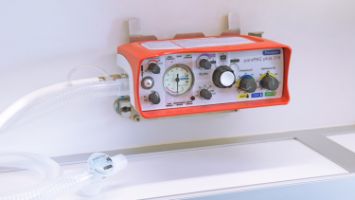Why Some Patients Are Consenting to Tracheostomies, a Surgical Procedure With Potentially Serious Complications
Why Some Patients Are Consenting to Tracheostomies, a Surgical Procedure With Potentially Serious Complications
LONDON, May 1, 2018 /PRNewswire/ -- Tracheostomies. A quick search on Google describes it as "Tracheotomy, or tracheostomy, is a surgical procedure which consists of making an incision on the anterior aspect of the neck and opening a direct airway through an incision in the trachea." Notrach, an organization that specializes in helping patients seek alternatives to this potentially dangerous procedure, believes that the risks for tracheostomies are too great.
The patient may need help breathing, be it for the long, or short term. "Have a tracheostomy." How simple it sounds. But it is potentially seriously harmful.
Patients are consenting to this procedure in their thousands across North America. However, the procedure may not be explained to them in the detail it should be. Possibly, neither are potential alternative options which could mean many of these patients wouldn't have to have one.
A small sample of the complications includes death, infections, bleeding, permanent damage to vocal cords, damage to the esophagus, air trapping (causing a life-threatening condition) and the list goes on.
Yet thousands upon thousands of patients are consenting to this sometimes life-saving procedure. The key word here is sometimes. In so many cases, it could have, or should have never been performed in the first place. The consent forms for these procedures are lengthy and varied. Why, one may ask, are these tracheostomies performed so often then?
Sometimes the procedure is the only option the patient actually has. Often, however, that simply isn't the case. Doctors today are far too ready and eager to perform these procedures. It has simply become routine. For some medical establishments, the fees can be upwards of $250,000. It makes money. The past decade has seen a substantial increase in tracheostomies. In that same decade, so have the payments for compensation relating to these procedures. Most payouts are in the millions.
Rarely will the doctors who convince their patients that this is the only option for them explain that other options might work for them. Non-invasive ventilation has come a long way in the last decade. There are two types currently available, Mask based ventilation, and Biphasic Cuirass Ventilation. It could well be that one or the other has failed, and the physician will then jump straight to a tracheostomy. The fact is, that very often, where one method has failed, the other could well work. Jumping straight to a tracheostomy without at least trying both options is like amputating one's hand because it got infected. It's like saying, one antibiotic was tried and it didn't work, so we won't bother to try another. Amputate!
By jumping to a tracheostomy, without trying everything possible to avoid it - at the very least both forms of ventilation, (mask based, and Biphasic Cuirass Ventilation) the door can be left wide open to a claim of a particularly costly case of medical negligence.
Gary Mefford of Hayek Medical, a device manufacturer that specializes in Biphasic Cuirass Ventilation commented, "We see this all too often. Patients are being pushed into it [a tracheostomy]. They simply are not being given the chance to avoid it. We have helped thousands upon thousands of patients worldwide. It's proven. Case after case after case, it's just unbelievable."
The aftercare costs often run into millions. Infections which are incredibly common costs huge amounts of money to treat. Health insurance companies have started to question whether they should pay for these costs if the procedure could have been avoided in the first place.
Perhaps when the payouts for negligence outweigh the amount earned by these procedures, the rules about when these procedures are appropriate will change.
email: Public.Relations@notrach.com
View original content:http://www.prnewswire.com/news-releases/why-some-patients-are-consenting-to-tracheostomies-a-surgical-procedure-with-potentially-serious-complications-300640112.html
SOURCE Notrach





